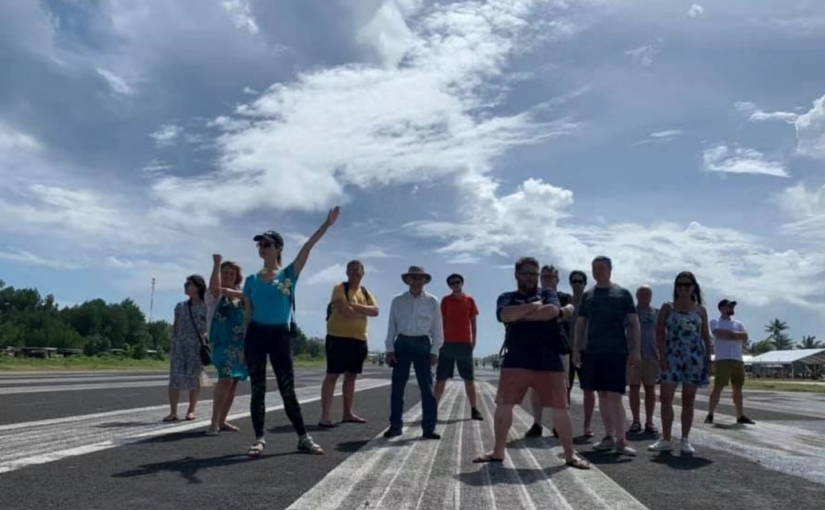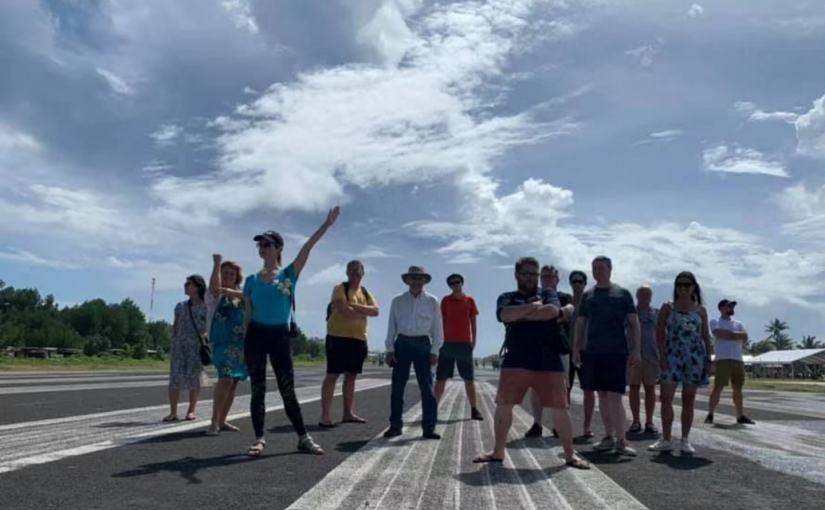
Language of Tuvalu
What is the Language of Tuvalu?
The language of Tuvalu is Tuvaluan, a Polynesian language. Given that Tuvalu only has a population of 10,000 this is not a language you are going to bump into often.
Tuvalu might have a small population, but its 8 main inhabited islands spread over a huge area in the Pacific Ocean, so there are various dialects and on the island of Nui the language spoken is a dialect of Kiribati, another island country that Tuvalu used to be part of as a colony of the United Kingdom.
As a Polynesian language, Tuvaluan is related to languages such as Hawaiian, Maori, Samoan and Tongan for example, but mutually unintelligible. It is more closely related to the languages of Micronesia and Melanesia.
In Tuvalu itself you’ll also hear Samoan, Kiribati and Gilbertese spoken, if you can tell the difference!
How to say hello in Tuvalu?
In Tuvalu you will hear the greeting Tālofa all the time, meaning hello, and also Tōfā meaning goodbye. By the end of your stay you will be very into saying Tālofa, sometimes transliterated as Ta’alofa. This greeting is also used in Samoa, and is the same meaning as aloha in Hawaii.
Check this list for useful words and phrases, including one we have never had to use thus far: Taku hovercraft kō fonu i pusi – my hovercraft is full of eels!
What is the writing system in Tuvalu?
Like many languages around the world, Tuvaluan was basically an oral language without written record until the 19th century with transliteration systems done by European linguists and missionaries. There is currently still no standard system of writing, but rather a few options.
Tuvaluan has a 16 letter alphabet with the letters A, E, I, O, U, F, G, H, K, L, M, N, P, S, T and V.
Is English widely spoken in Tuvalu?
Absolutely. First it was a former UK colony, second Tuvalu has a very close relationship with Australia and New Zealand. English is an official language, taught in schools and used in government and business settings, and in Funafuti you’ll find many people able to converse in English.
One word you might also notice around the country is ‘palagi’, meaning foreigner, especially tourists, but which refers to anything foreign to such as a (non-traditional) palagi house.

Join our newsletter!
Enter your email to receive our latest newsletter.
Don't worry, we don't spam

Popular Articles
Visiting Diriyah the Remarkable Cradle of the Saudi State
UnknownUzbek Trains 8211 the Best Network in the World
UnknownWill the Darvaza Crater be Extinguished by Turkmenistans Government
UnknownWhat Are the 10 Largest Stadiums in the World
UnknownDrone Photography Guidelines in China for 2025
UnknownSyria Travel Update
UnknownNorth Korea to reopen to tourism in Rason
UnknownYPT now offers free Internet access on all Greenland Svalbard and Antarctica cruises
UnknownRelated Articles
Visiting Diriyah the Remarkable Cradle of the Saudi State
George MorrisUzbek Trains 8211 the Best Network in the World
George MorrisWill the Darvaza Crater be Extinguished by Turkmenistans Government
George MorrisThe Mundari tribes of South Sudan
Pier DoyonRason Day 4 and the March to Ordos
Gareth JohnsonFeatured Tours

Afghanistan Spring Tour
8 Nights, 8 DaysStart Date: May 19th 2025
Algeria, Mauritania, Mali and Burkina Faso Combo Tour
26 Nights, 26 DaysStart Date: January 14th 2022
75th Anniversary Party Foundation Day & Mount Kumgang Tour With Mass Games
8 Nights, 8 DaysStart Date: October 8th 2020
All Koreas Part 1: North Korea Borderlands
7 Nights, 7 DaysStart Date: June 13th 2025

